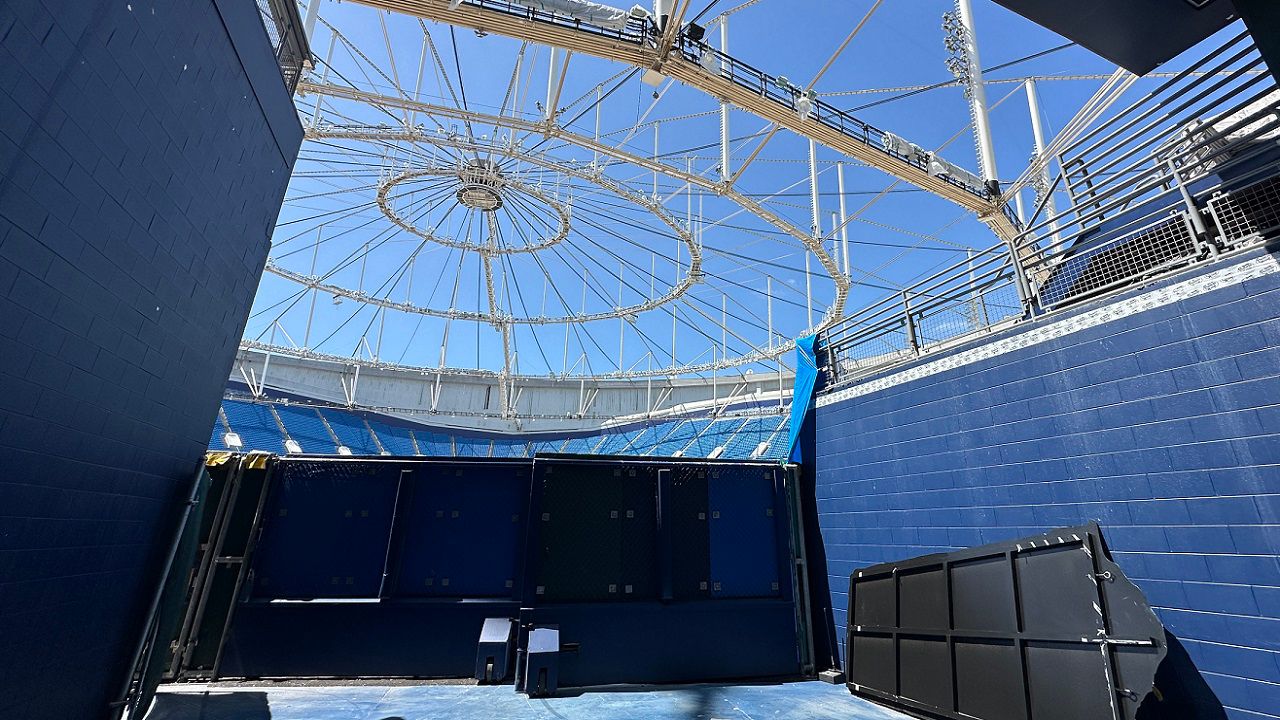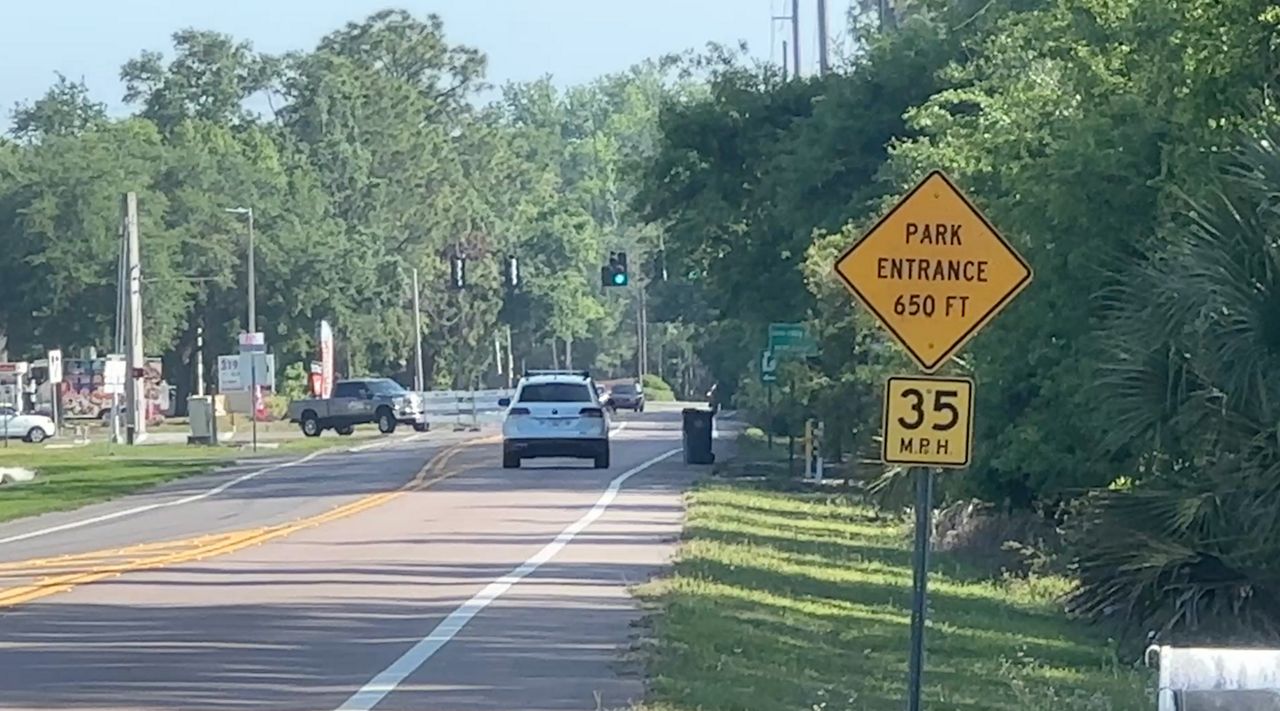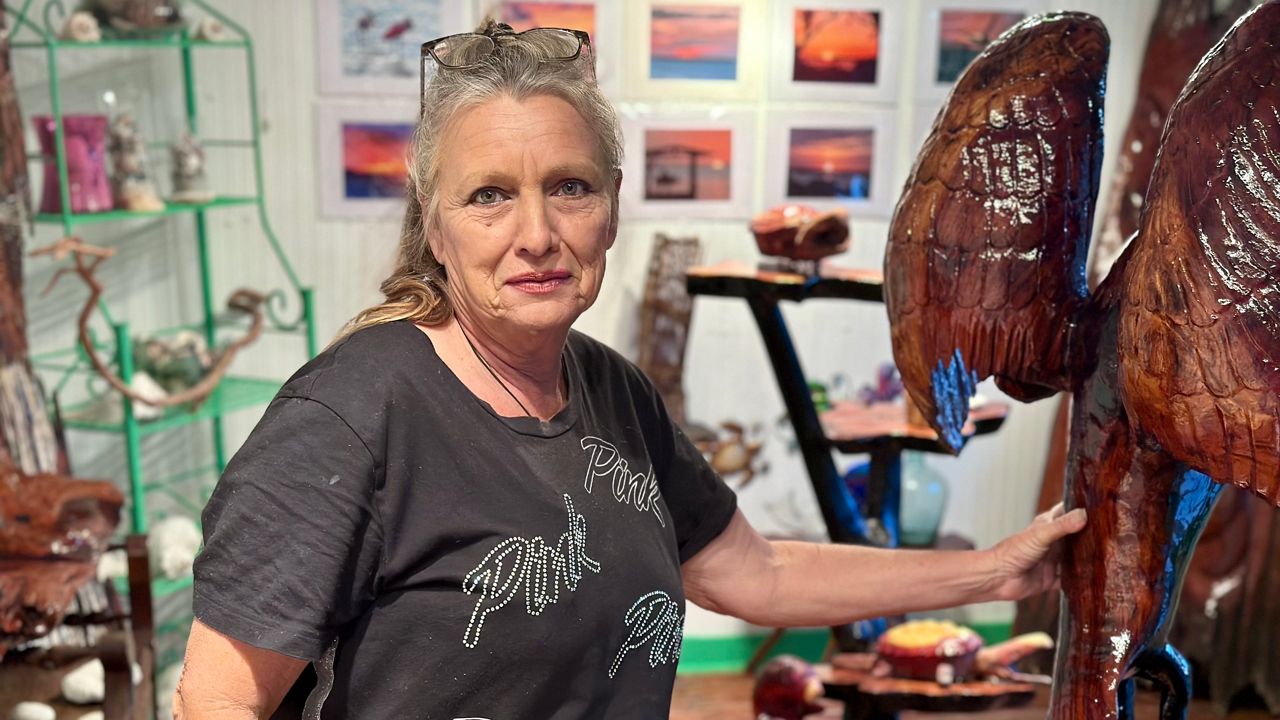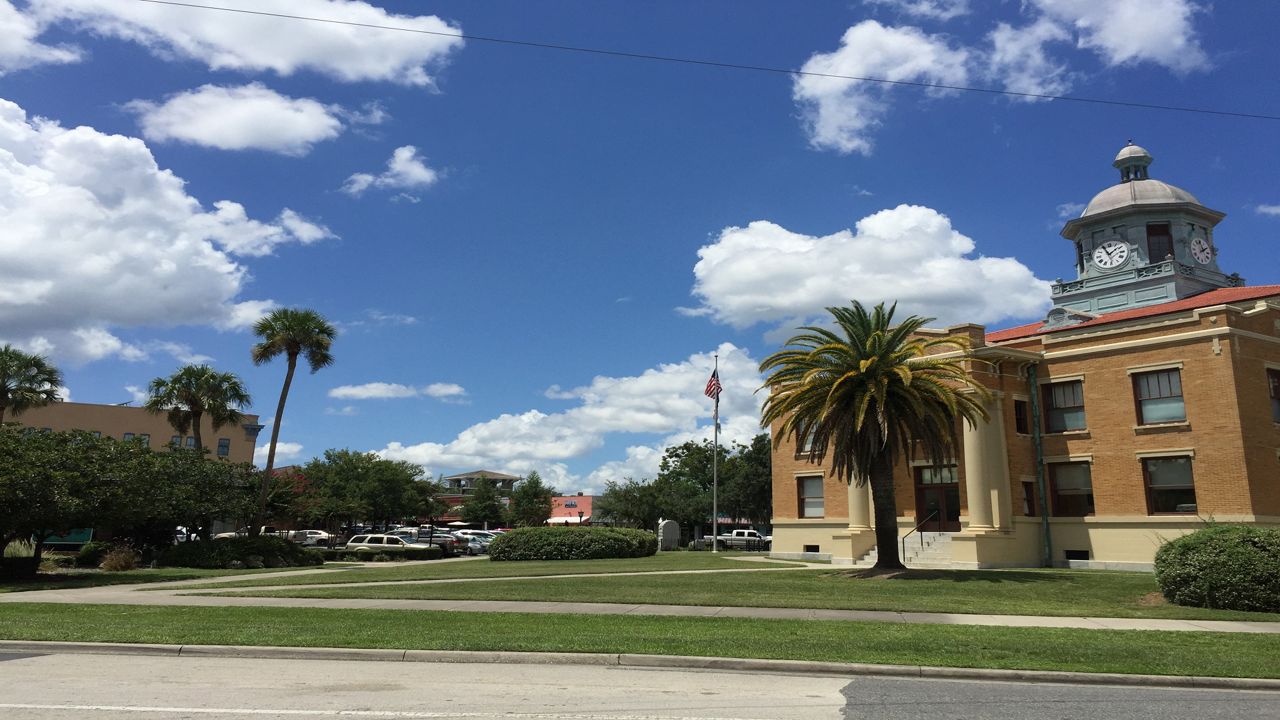TAMPA, Fla. — Get a good night's rest and it normally leads to a more productive, better day. However, sleep apnea stops peaceful slumber for millions of adults.
Sleep apnea doesn't just kick in at 18, it affects many kids too; especially kids with Down's syndrome.
Enter Dillon Dorr, 16.
“You got to pass those legs Dillon," said Tony Way, Gracie Palm Harbor Jiu Jitsu. “Six minutes is a long time for him to go straight through, and he is not breathing hard right now, he looks solid.”
Dorr lives with Down's syndrome. A few times a week, he goes to Gracie Palm Harbor with his dad to learn and practice Jiu Jitsu.
“There are things that he does that surprise me. Like, he choked somebody out, and I am like, I didn’t know you knew how to do that,” said Randy Dorr.
Dillon is happy to list all the moves he knows how to do, including a choke hold. That move is designed to squeeze the opponent to sleep.
“Yeah, I like it,” said Dillon with a smile.
But it is actually Dillon’s sleep at home that has been the real fight.
“To be honest, we didn’t realize how bad his sleep apnea was because he has Down's syndrome,” said Alison Dorr, Dillon’s mother.
Kids with Down's syndrome are often pre-disposed to have sleep apnea. Dillon’s sleep studies from his infant years to today show it has been and is a problem.
Unfortunately, for years, his parents tried a myriad of sleep solutions that each did not work.
From removing tonsils and adenoids, to tongue suspension surgery, and even a CPAP.
“The sleep doctor tried messing with the settings of the CPAP. We went from the CPAP to BiPAP. We just tired everything,” said Alison.
His family tried everything available. But then the unavailable became possible.
“So the nerve sits right in this groove here, and we wrap it and this is all implantable," said Dr. Tapan Padhya, Chief, Tampa General Hospital's Ear, Nose and Throat Institute and Professor and Chair of the Division of Head and Neck Oncology with USF Health.
Dr. Padhya holds the Inspire device for sleep apnea.
“This is, in essence, the sleep pacemaker,” said Dr. Padhya. “We knew the device worked. It was just a question of what happens to the device in a growing child or teenager.”
Approved only for adult use, a trial and study had the U.S. Food and Drug Administration give the OK for children with Down's syndrome to receive the surgical procedure.
This made it possible for Dillon to become the first kid in Florida to have this surgery completed at Tampa General Hospital.
Dr. Padhya explains the surgery.
“There is a small little electrode that we put on the nerve itself, and the wire is tunneled underneath the skin to a pacemaker that sits right underneath the collar bone,” said Dr. Padhya.
Another wire is then attached to the patient’s rib cage, and with a wireless remote, the patient can turn the Inspire device on before falling asleep.
“It will simultaneously activate the right side of the tongue, pushing the tongue forward, and stiffening the tongue, opening up the airway,” said Dr. Padhya.
This gives patients more restful sleep.
“Right here,” said Dillon, pointing to his chest. The Inspire device is under his skin now, implanted for life.
In just the few months it has been there, already there has been a noticeable change in Dillon.
“Like just his willingness to stay on task, like we get a sheet every day for every class. He shows us that he gets great day now, and finishing his work,” said Alison.
During the daylight hours, Dillon will work to master the art of fighting Jiu Jitsu. At night, he will let his Inspire Device do the fighting for him.
“Go to sleep and then get up in the morning,” said Dillon. That is all he needs to do now, without any worry of less restful sleep.
Tampa General Hospital spokesperson said, “to qualify for the pediatric procedure, patients must have Down syndrome. They must be between 12 and 18 years of age, have moderate-to-severe sleep apnea and be intolerant of a CPAP device. While trials have suggested that a weight below the 95th percentile is safest for children undergoing this procedure, there is no specific weight criteria for children as there is for adults.”









